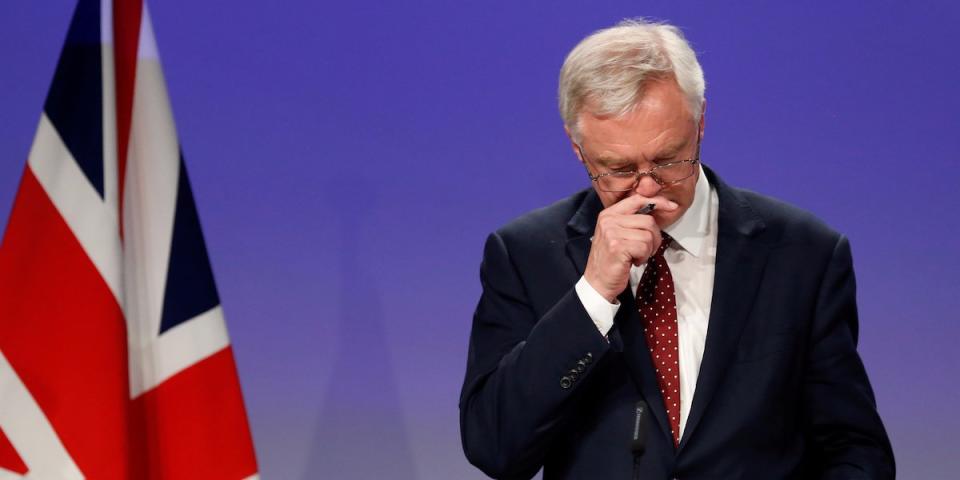May urges EU not to place new restrictions on British goods after Brexit

REUTERS/Francois Lenoir
LONDON — Theresa May's government has urged the European Union to allow British businesses to continue to enjoy the benefits of the free trade of goods into Europe after Britain has left the EU.
In the position paper published on Monday morning, the Department for Exiting the European Union (DExEU) expressed its desire for "the freest and most frictionless trade" of both goods and services after March 2019.
To achieve this, the UK government wants the EU to allow goods placed on the single market by British businesses before exit day to be able to be sold without "any additional requirements or restrictions" after withdrawal, and for British products which have undergone an authorisation process prior to Brexit to remain authorised after Britain completes its departure.
These proposals would reassure British exporters and businesses and allow them to "plan ahead with certainty" as Britain prepares to exit the 28-nation bloc in 2019, the paper says.
In a statement accompanying the papers, DExEU Secretary David Davis said: "These papers will help give businesses and consumers certainty and confidence in the UK’s status as an economic powerhouse after we have left the EU.
"They also show that as we enter the third round of negotiations, it is clear that our separation from the EU and future relationship are inextricably linked.
"We have already begun to set out what we would like to see from a future relationship on issues such as customs and are ready to begin a formal dialogue on this and other issues."
The paper outlines four key principles in regards to the availability of goods and services after Brexit:
"Firstly, we want to ensure that goods which are placed on the market before exit day can continue to be sold in the UK and EU, without any additional requirements or restrictions.
"Secondly, we want to avoid unnecessary duplication of compliance activities that have been undertaken by businesses prior to exit. This means that where products have gone through an authorisation process prior to exit, for example a type approval for a car, this approval should remain valid in both markets after exit.
"Thirdly, we are clear that patient safety and consumer protection in the EU27 and UK are paramount, which means that any agreement will need to facilitate the continued oversight of products to ensure the necessary action can be taken for non-compliant or unsafe goods.
"Finally, the provision of goods and services is increasingly interconnected. Services are essential for production of goods, for their sale, distribution and delivery, and for their operation and repair. Where goods are supplied with services, we believe there should be no restriction to the provision of these services."
This paper is one of two to be released by DExEU on Monday. In the other, the UK government vows to ensure that the confidentiality official documents shared with the EU and its member states will be protected after Brexit. Position papers on data and the European Court of Justice (ECJ) are also scheduled to be published this week.
Last week DExEU published papers on two key aspects of Brexit talks: the customs union and Northern Irish border.
In the first, DExEU articulated its desire to leave the customs union and form a "new" and "frictionless" customs arrangement with the EU, following a "business-friendly" transitional period lasting up to three years.
In its paper on Northern Ireland, DExEU vowed to uphold both the Good Friday peace agreement and Common Travel Area (CTA) at the heart of talks with the EU, in order to prevent the return of a hard border between Ireland the the UK.
NOW WATCH: These are the final chimes of Big Ben until 2021 as it undergoes major repair works
See Also:
The UK government abandons Theresa May's red line on European judges
Theresa May climb downs from her Brexit red-line on European judges
SEE ALSO: Leading EU academic: The government's customs union position paper is a 'sign of a weakness'
DON'T MISS: Customs union expert: The government's Brexit plans would never create 'frictionless' trade

 Yahoo Finance
Yahoo Finance 
